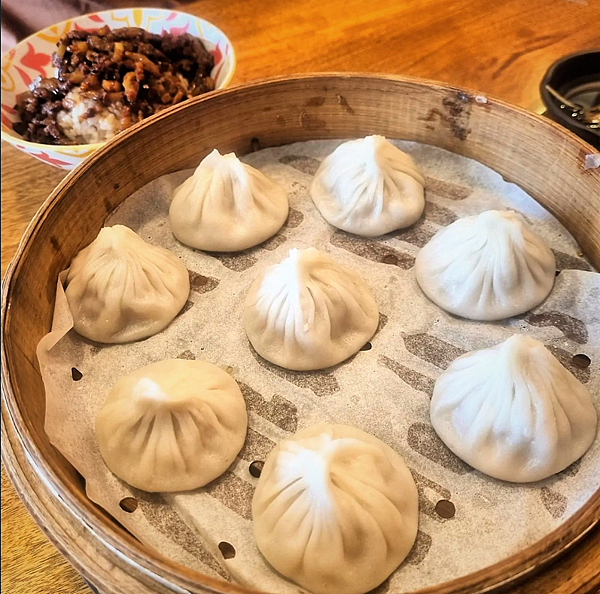台灣,老實說 ★洛杉磯時報/ 包士可(2010.08.20)雲程譯
【Comment】仍是外交上的雙重保證的實踐,只是說的更清楚,更有準備。應該去看卜睿哲的《台灣的未來》與《不一樣的戰爭:台灣的選擇 中國的焦慮 美國的挑戰》。前者又比後者好。
台灣,老實說 ★洛杉磯時報/ 包士可(2010.08.20)雲程譯
「戰略模糊」的價值已走到盡頭。只要中國相信美國會放棄民主台灣以避免戰爭的話,衝突的危險就會增加。
1995年8月與1996年3月,中國跨過台灣海峽發射飛彈,封鎖國際商業。
在這兩個此,柯林頓總統派遣航空母艦,嚇阻中國的升級,這是美國航艦第一次直接通過台灣海峽。中國譴責侵犯其主權(就像現在反對美韓海軍在黃海的計劃性演習)和威脅只要下一次航母戰鬥群進入海峽,就是海火一片。
船隻避開,中國停止發射導彈,危機消退。
但這只是當時。
講到剛公佈的〈美國國防部評估〉,描述中國持續的軍事建設和其對台灣、南中國海和該地區其他地方的潛在領土要求。
反西方、敵視和偏執的毛主席,重新出現並主導新的美國「圍堵」中國論調上。但現在,不滿和怨恨感的背後是西方幫助中國建設起來的巨大經濟和軍事力量。
美國國防部長羅伯特蓋茨曾公開質疑北京挑釁國際準則的做法。參謀長聯席會議主席Michael G. Mullen上將最近指出:「我已經從好奇(中國)正在做什麼,變成關切他們在做什麼。」
國務卿希拉蕊柯林頓對北京正切斷在南中國海自的由航行權予以警告。奧巴馬政府擔心,北京正在定義該地為等同於西藏和台灣的「核心利益」;如果未受挑戰,北京此舉可能導致中國危險的冒險主義。
然而,在台灣這個爆發點上,美國總統奧巴馬的團隊已很不明智的延續了從尼克森以來歷屆政府所遵守「戰略模糊」政策。
根據這一政策,華盛頓定期對台北出售最小自我防禦的武器,受到中國排山倒海的抨擊。不過,華盛頓對美國會進行干預或不干預並沒有任何承諾。美國將自己放在北京不可預測性的手中。
90年代中期的導彈事件,是從韓戰以來最親密的美國和中國已公開衝突。
當時,中國軍事官員問助理國務卿Joseph Nye:如果中國要攻打台灣,美國將如何回應。
他回答說:「我們不知道,你也不會知道。這要看情況而定。」
當中國將軍兩次提出,若美國防衛台灣可能導致到達美洲內地的核子戰爭時,美國官員仍不斷重申這句口頭禪。
除了嚴厲的言論外,中國還進一步為未來與台彎的衝突,購買更多的潛艇與反艦導彈,可以擊沈在台灣附近任何地方的航空母艦。美國國防部在〈2010年四年防務評估報告〉確認了在美國複雜的規劃下此戰略的可行。
現在,這兩個國家在一個典型「威懾/反威懾」的動態中準備戰爭,一個災難性的、相互誤判的戰爭。
無論是北京還是華盛頓都不希望戰爭,但只要中國相信,美國最終會放棄民主台灣以避免它戰爭,衝突的危險就會增加。
到了美國釐清台灣的時候,戰略模糊已經奏到盡頭。
華盛頓應該聲明:我們將捍衛民主的台灣以抵禦中國的任何攻擊或脅迫,而我們也歡迎台灣參與國際組織(開始邀請總統馬英九到檀香山的12月會議的亞太經濟合作組織)。
作為回報,台灣暫時必須放棄正式獨立,即使如此,台灣最終仍應符合美國的價值觀。
作為中國的放棄武力的回報,美國政府也應該保證不承認正式的台灣國格,並阻止他國承認,但同時美國也應堅持中國使用武力美國將立即承認台灣。
最後,柯林頓應該重新考慮先前她不願去挑戰的中國差勁的人權紀錄。支持中國更民主的原則,是長期解決兩岸難題最好的方法。兩個民主人民可以和平管理統一,獨立或聯合的問題。如果沒有長期的中國共產黨問題,就不會有棘手的台灣問題。
包士可,國家安全顧問、任教喬治城大學外交學院,專長美中台關係,其於美國國防部內亞太安全事務中扮演中方智囊。Joseph A. Bosco, a national security consultant, specialized in China-Taiwan-U.S. relations at Georgetown 's School of Foreign Service . He worked for the China desk in Asia- Pacific Security Affairs at the office of the secretary of Defense.
http://articles.latimes.com/2010/aug/20/opinion/la-oe-bosco-china-20100820
http://articles.latimes.com/2010/aug/20/opinion/la-oe-bosco-china-20100820/2
Straight talk on Taiwan ★Los Angeles Times / Joseph A. Bosco(2010.08.20)
The value of 'strategic ambiguity' has run its course. As long as China believes the U.S. will abandon democratic Taiwan to avoid going to war, the danger of conflict increases.
August 20, 2010|By Joseph A. Bosco
In August 1995 and March 1996, China fired missiles across the Taiwan Strait, closing it to international commerce.
On both occasions, President Clinton sent aircraft carriers to deter Chinese escalation, the first time directly through the Taiwan Strait . China condemned this "violation" of its sovereignty (just as it now objects to planned U.S.-South Korea naval exercises in the Yellow Sea ) and threatened "a sea of fire" for the next battle group entering the strait.
The ships stayed out, China stopped firing missiles, and the crisis dissipated.
That time.
Fast-forward to a just-released Defense Department assessment that describes China 's continuing military buildup and its potential to enforce territorial claims on Taiwan , in the South China Sea and elsewhere in the region.
The anti-Western hostility and paranoia of Chairman Mao's years have resurfaced in fresh charges of U.S. "containment" and "encirclement" of China . But now that sense of grievance and resentment is backed by the massive economic and military power the West helped China build.
U.S. Defense Secretary Robert M. Gates has openly questioned Beijing 's defiant approach to international norms. And Adm. Michael G. Mullen, chairman of the Joint Chiefs of Staff, recently stated: "I have moved from being curious about what [the Chinese] are doing to being concerned about what they are doing."
Secretary of State Hillary Rodham Clinton correctly warned Beijing against cutting off freedom of navigation in the South China Sea . The Obama administration worries that Beijing is defining its claims there as "core interests" on a par with Tibet and Taiwan , and if unchallenged, that could lead to dangerous Chinese adventurism.
Yet, on the Taiwan flashpoint, President Obama's team has unwisely perpetuated the policy of "strategic ambiguity" followed by every administration since Richard Nixon's.
Under that policy, Washington periodically sells Taipei weapons for minimal self-defense against an overwhelming Chinese attack. But Washington does not commit the United States to intervene, or not to intervene. We rely on American unpredictability to stay Beijing 's hand.
The missile incidents of the mid-1990s were the closest the U.S. and China had come to open conflict since the Korean War.
At the time, Chinese military officials asked Assistant Secretary of State Joseph Nye how the U.S. would respond if China were to attack Taiwan .
He replied: "We don't know and you don't know. It would depend on the circumstances."
U.S. officials have repeated that mantra ever since, while Chinese generals have twice suggested that a U.S. defense of Taiwan could result in nuclear war reaching the American mainland.
http://articles.latimes.com/2010/aug/20/opinion/la-oe-bosco-china-20100820

















